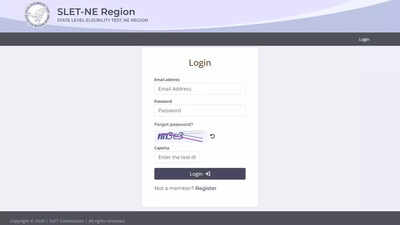In the latest development in the US artificial intelligence (AI) job market, top AI researchers are reportedly receiving compensation packages exceeding $250 million, matching or even surpassing earnings of NBA superstars. As reported by The New York Times, technology firms including Meta, Google, OpenAI, and Microsoft are engaging in aggressive recruitment strategies, likened to free agency negotiations in professional sports.The AI talent war has intensified as companies compete to develop “superintelligence” — advanced AI systems capable of outperforming the human brain. The scarcity of experienced researchers has led to highly competitive offers and personal interventions by tech executives to secure top talent.High-value offers and personal outreachMeta CEO Mark Zuckerberg reportedly offered 24-year-old AI researcher Matt Deitke a compensation package worth approximately $250 million over four years. According to The New York Times, the offer included as much as $100 million in the first year alone. Mr Deitke, who co-founded the startup Vercept, had initially declined an earlier offer of around $125 million in stock and cash. Following further negotiation and a personal meeting with Mr Zuckerberg, Mr Deitke accepted the revised offer.Recruitment efforts have become highly personalised. Zuckerberg has been directly messaging potential recruits, often following up with larger offers. As quoted by The New York Times, some Meta employees likened this strategy to the approach of sports franchise owners. The publication also reported that companies see these high compensation packages as justifiable, with the potential to significantly increase revenue through AI advancements.Recruitment tactics reflect professional sports cultureThe current AI hiring environment is marked by a level of intensity resembling that of major sports leagues. Companies have been poaching talent from each other, and social media has mirrored this dynamic with graphics and posts styled after sports trade announcements. One such post, made by the tech-focused online streaming platform TBPN, read: “BREAKING: Microsoft has poached over 20 staff members from DeepMind over the last six months,” as cited by The New York Times.Many young AI researchers have reportedly formed private online groups to discuss offers, compare compensation packages, and advise each other on negotiation strategies. These discussions have taken place on platforms such as Slack and Discord, according to the report. The growing influence of these informal networks has shaped how researchers approach career decisions.Computing resources and recruitment networksIn addition to financial compensation, companies like Meta are also offering vast computing resources. As per The New York Times, some recruits have been promised access to 30,000 graphical processing units (GPUs) — a critical asset for developing and training large AI models.Recruitment efforts are also being guided by internal documents, including one referred to as “the List.” This list, as reported by The New York Times, contains names of top researchers with qualifications such as a Ph.D. in an AI-related field, experience at leading research labs, and a record of contributing to significant AI breakthroughs.Market shifts and internal challengesThe demand for elite AI talent has also affected internal structures at companies like OpenAI. According to The New York Times, OpenAI’s Chief Research Officer Mark Chen acknowledged in a staff meeting that the company has been countering offers from competitors. However, he noted that OpenAI had not matched Meta’s financial proposals, stating, “I personally think that in order to work here, you have to believe in the upside of OpenAI,” as quoted in the report.This rapid escalation in compensation has led to a redefinition of how value is assigned to AI expertise in the US, with new recruits often attempting to bring former colleagues into their teams. The New York Times also noted that researchers frequently try to recruit friends after joining a new lab, strengthening internal cohesion and collaboration.Background on Matt Deitke and VerceptMr Deitke, who left a Ph.D. programme at the University of Washington, previously worked at the Allen Institute for Artificial Intelligence, where he contributed to the development of Molmo — an AI chatbot capable of handling images, sounds, and text. In November, he and several colleagues founded Vercept, a startup building autonomous AI agents. Vercept has reportedly raised $16.5 million in funding, including investment from former Google CEO Eric Schmidt.Following Mr Deitke’s decision to accept Meta’s offer, Vercept’s CEO posted on social media: “We look forward to joining Matt on his private island next year,” as cited by The New York Times.TOI Education is on WhatsApp now. Follow us here.https://whatsapp.com/channel/0029Vb64Bm6IyPtP3OM5XF1x






